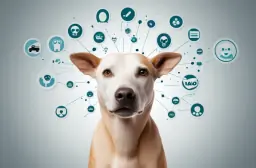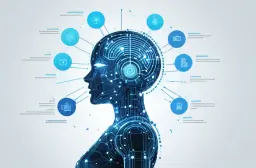AI-Powered Marketing Strategies to Boost Your ROI in 2025

Table of Contents
We’ve entered an era where marketing is no longer just about creativity—it’s about intelligent automation. As marketers, we’ve always sought to connect the right message with the right audience at the right time. But now, with AI at our fingertips, we’re unlocking unprecedented precision and efficiency. AI-powered marketing strategies are no longer optional; they’re the keystone to competitive advantage and sustainable growth.
In this article, we’ll dive deep into how AI-driven marketing tactics are transforming the digital landscape in 2025. From machine learning marketing solutions to conversational AI and predictive analytics, we’ll walk through real-world applications, strategic benefits, and the best practices to maximize your return on investment.
The Rise of Intelligent Marketing: Why 2025 Demands an AI-First Approach
As we advance into 2025, AI is no longer confined to labs or experimental pilots. It’s at the heart of the most successful marketing strategies across industries—from retail to healthcare to finance.
Why now? Because consumers expect more. Personalization, speed, and seamless engagement are no longer perks—they’re the norm. And only AI can operate at the scale and speed required to meet these expectations consistently.
- AI adoption in marketing has increased by over 240% in the last three years, according to Salesforce.
- More than 60% of marketers now use AI to personalize customer experiences, and this number is growing.
- AI tools powered by neural networks and deep learning allow for smarter ad placements and real-time content adjustments.
This shift toward intelligent marketing strategies is driven by the capability to make sense of massive data streams, segment audiences more granularly, and execute with near-perfect timing. Human intuition is no match for an algorithm analyzing millions of behaviors simultaneously.
AI-Driven Personalization: Going Beyond Basic Targeting

The old way of segmentation—age, location, income—is quickly becoming obsolete. AI enables hyper-personalized marketing by tapping into behavioral patterns, intent signals, and contextual data.
AI-driven marketing tactics personalize user experiences in real-time using:
- Predictive analytics in marketing to forecast user behavior
- Personalized marketing algorithms that update based on live feedback
- Behavioral targeting AI that maps journey paths unique to each customer
For instance, Netflix uses AI to personalize thumbnails and recommendations based on user behavior. Similarly, e-commerce platforms like Amazon deploy deep learning advertising to recommend products in real time based on current and past interactions.
The result? Dramatically improved engagement, click-through rates, and ROI.
Smart Marketing Automation: Scaling Campaigns with Precision
Automation isn’t new, but smart marketing automation fueled by AI is on a different level. It enables marketers to:
- Optimize email send times using machine learning marketing solutions
- Automate A/B testing at scale using algorithmic marketing methods
- Adjust messaging based on sentiment analysis from natural language processing (NLP)-based marketing approaches
Case in Point: Sephora’s chatbot uses conversational AI to help users find products and schedule makeovers. This not only boosts engagement but also reduces customer service overhead.
By integrating automated marketing techniques, brands reduce manual effort while increasing campaign impact. AI handles the data. We handle the strategy.
Content Optimization with AI: Smarter, Faster, More Effective
We’ve all struggled with keyword stuffing, guessing headlines, and crafting CTAs that convert. Now, AI content optimization tools like Jasper, Copy.ai, and Surfer SEO are revolutionizing content creation.
These tools utilize:
- Cognitive marketing tools for semantic analysis
- LSI keywords for AI marketing to improve topical relevance
- Voice search marketing strategies to tailor for spoken queries
- Semantic SEO optimization to align with how AI engines like Google BERT understand context
For example, tools like Clearscope analyze top-performing content and recommend improvements based on AI algorithms, helping writers create search-optimized content without losing their creative edge.
Content is still king—but now, it wears a neural crown.
Predictive and Contextual Advertising: Catch Them Before They Search

With contextual advertising AI and predictive analytics in marketing, brands can anticipate customer needs—sometimes before the customer knows what they need.
Here’s how it works:
- Predictive models analyze purchase history, web behavior, and external factors (weather, trends).
- Ads are then tailored to these micro-signals, increasing conversion likelihood.
Take Spotify as an example: their AI doesn’t just recommend songs—it curates ads based on mood, time of day, and even the user’s device.
Advertisers leveraging predictive AI report up to a 30% increase in ad ROI, according to McKinsey.
| Ad Strategy | Traditional Methods | AI-Powered Approach |
|---|---|---|
| Targeting | Demographic-based | Behavioral + Contextual |
| Timing | Static Schedule | Real-time Decisioning |
| Message Optimization | A/B Testing | Continuous Learning via AI |
| Results Measurement | After Campaign Ends | Live Feedback & Adjustment |
Conversational AI: Real-Time Engagement That Converts
Chatbots have evolved. Today’s conversational AI marketing tools go far beyond scripted Q&As. They can:
- Understand nuance with natural language processing
- Personalize responses using user profile data
- Recommend products with AI-driven suggestions
From Drift’s B2B conversational bots to Meta’s AI assistant in Messenger, brands are using neural network marketing to automate lead qualification, upselling, and even checkout.
“Chatbots that use AI convert 3x more than traditional ones,” says HubSpot.
This tech provides human-like interaction at scale—without the human costs.
Overcoming Challenges in AI Marketing Integration
While the benefits are clear, integrating AI isn’t without challenges:
- Data silos and quality: Poor data leads to poor AI output.
- Privacy concerns: Customers demand transparency.
- Learning curve: Not all teams are AI-savvy.
Solutions include:
- Using centralized data warehouses
- Implementing transparent data policies (think GDPR compliance)
- Providing training or partnering with AI specialists
Don’t fear the learning curve—embrace it. The ROI is worth the climb.
FAQs
What are AI-powered marketing strategies?
These are marketing tactics that use artificial intelligence to automate, optimize, and personalize campaigns across various channels.
How do AI-driven marketing tactics improve ROI?
By targeting the right users at the right time with the right message, AI minimizes waste and maximizes engagement.
Is AI marketing expensive to implement?
Not necessarily. While some tools can be premium-priced, there are scalable options for startups and small businesses too.
What’s the difference between smart automation and traditional automation?
Smart automation uses real-time learning and adaptation, whereas traditional automation relies on pre-set rules.
How secure is AI in marketing regarding customer data?
AI tools must comply with data protection laws like GDPR and CCPA. Choose vendors with robust compliance practices.
Conclusion
AI-powered marketing strategies are more than just a trend—they are the new standard. Whether it’s through hyper-personalization, predictive advertising, or smart automation, AI empowers us to do more with less, scale with precision, and deliver meaningful engagement at every touchpoint.
But technology is only part of the equation. To truly maximize your ROI in 2025, we must also evolve our mindset—embracing experimentation, continuous learning, and data-informed creativity.
The future of marketing isn’t just AI-powered. It’s AI-optimized, AI-personalized, and AI-scaled.
Key Takeaways
- AI-powered marketing strategies are essential for staying competitive in 2025.
- Predictive analytics and machine learning deliver precision targeting and better ROI.
- Content optimization and conversational AI increase engagement and conversions.
- Marketers must overcome integration challenges with proper tools and training.
- The future is smart, scalable, and powered by algorithms that think like your customers.
Popular Tags
ADS SPACE HERE


